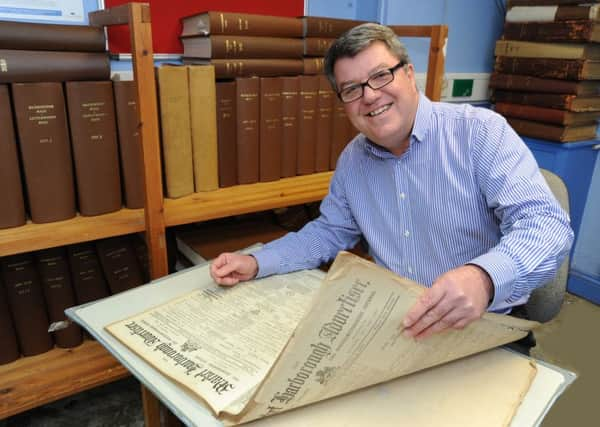John's WWI blog: Joyriding 100 years ago


Joyriders who steal cars and crash them are not it seems just a modern-day phenomenon if a story in the February 29, 1916, edition of the Market Harborough Advertiser is anything to go by.
The paper reports that 16-year-old Albert Crampton appeared in court for taking a £60 car which was ‘recovered in London somewhat damaged’.
Advertisement
Hide AdAdvertisement
Hide AdMechanic’s apprentice Crampton, who took the car from Pythchley Auto-car Co at Great Bowden as well as £1 2s 6d, was bailed for the total sum of £30.
The court report again catches the eye of the readers as for the second consecutive week there are no stories emanating from letters written by soldiers at the front.
Across the span of a hundred years it is not clear if this is because there is little action at the Front or whether it is a deliberate editorial ploy which coincides with the new Military Service Act – conscription of young single men by any other name.
There is certainly evidence of the latter with a number of articles cataloguing the national and local situation. In Market Harborough there is news of a Tribunal involving 13 young men asking to be exempted from service. Among the cases heard are the following – none of them with names noted although readers in the small market town community would probably have a good idea of who was being reported.
THE ORGANIST
Advertisement
Hide AdAdvertisement
Hide AdAn insurance agent who was trained as an organist asked if he could be given non-combatant service ‘as he did not want to come back with a finger or foot off for that would destroy what it had taken him years to prepare for’.
Verdict: The Chairman was not persuaded and said ‘an arm was equally important in the case of a man who made boots’.
THE BUILDER’S CLERK
The son of a widow applied for exemption claiming he was her sole support. However, contradictory evidence was then given that there was a female relative living with the woman and her eldest son, who was in the Army, provided her with an allowance.
Verdict: Application refused and the clerk was told to make his mother an allowance from his army pay.
FIVE EMPLOYEES AT THE CO-OP
Advertisement
Hide AdAdvertisement
Hide AdAppeals were made by the Co-op on behalf of a van driver, a slaughterman, a van man, a baker and a provision hand. They were among just 17 men out of 52 left of military age at the business.
Verdict: The slaughterman and the baker were given total exemption. The provision hand was given a month’s postponement and so was the van driver with the Chairman saying the non-delivery of goods to private houses was hardly a hardship. The van man was told he would be called up straight away.
THE WINE AND SPIRIT MERCHANT
A wine and spirit merchant said he needed his son to stay at home as he did all the cellar work, bottling and reducing. The report says: “Four out of his eight staff had gone and he had a son at the Front now. He had been most anxious to release his son but he did not see how he could without seriously jeopardising his business.”
Verdict: The Tribunal consented to a postponement for two months.